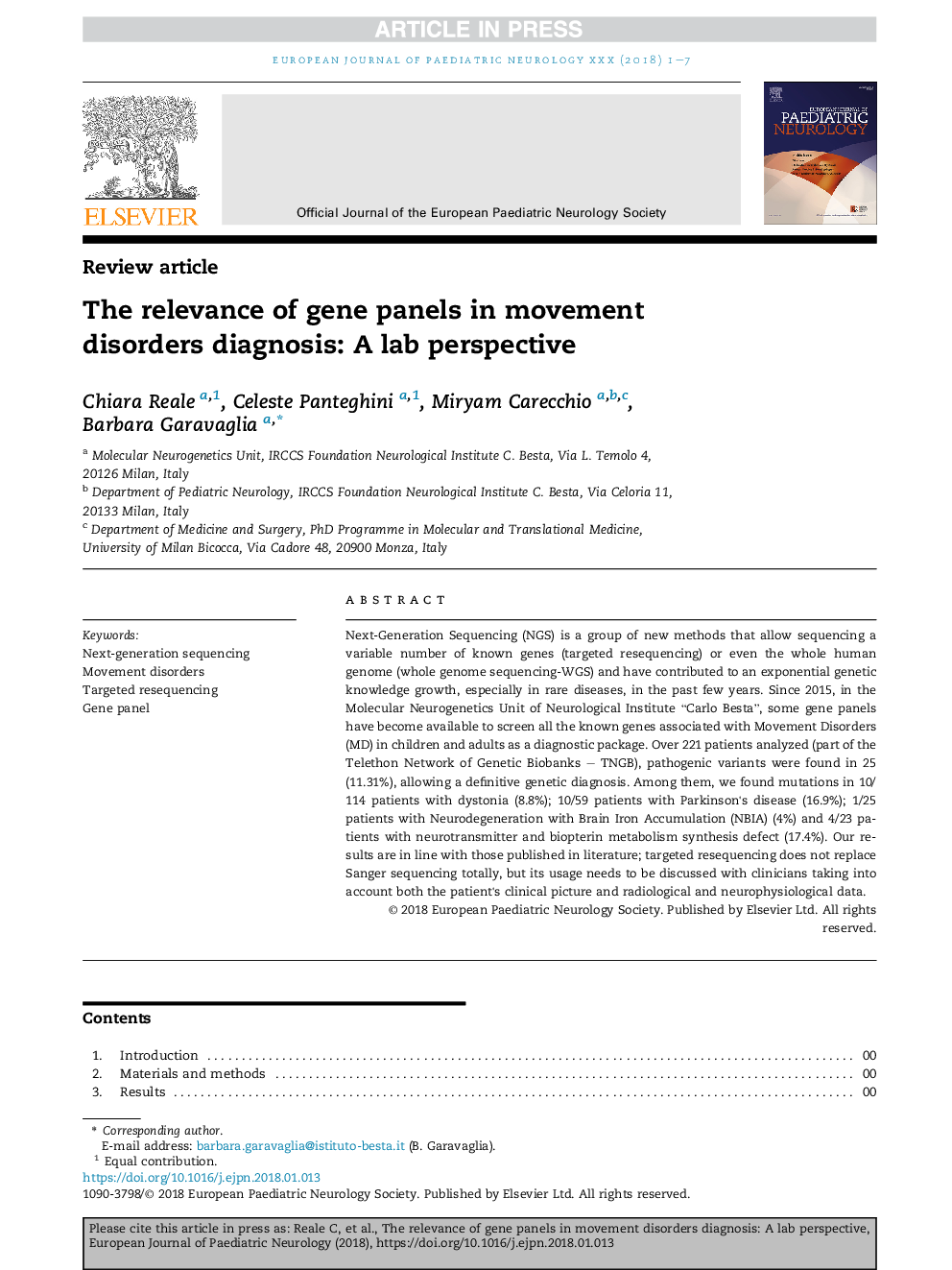| Article ID | Journal | Published Year | Pages | File Type |
|---|---|---|---|---|
| 8684410 | European Journal of Paediatric Neurology | 2018 | 7 Pages |
Abstract
Next-Generation Sequencing (NGS) is a group of new methods that allow sequencing a variable number of known genes (targeted resequencing) or even the whole human genome (whole genome sequencing-WGS) and have contributed to an exponential genetic knowledge growth, especially in rare diseases, in the past few years. Since 2015, in the Molecular Neurogenetics Unit of Neurological Institute “Carlo Besta”, some gene panels have become available to screen all the known genes associated with Movement Disorders (MD) in children and adults as a diagnostic package. Over 221 patients analyzed (part of the Telethon Network of Genetic Biobanks - TNGB), pathogenic variants were found in 25 (11.31%), allowing a definitive genetic diagnosis. Among them, we found mutations in 10/114 patients with dystonia (8.8%); 10/59 patients with Parkinson's disease (16.9%); 1/25 patients with Neurodegeneration with Brain Iron Accumulation (NBIA) (4%) and 4/23 patients with neurotransmitter and biopterin metabolism synthesis defect (17.4%). Our results are in line with those published in literature; targeted resequencing does not replace Sanger sequencing totally, but its usage needs to be discussed with clinicians taking into account both the patient's clinical picture and radiological and neurophysiological data.
Related Topics
Life Sciences
Neuroscience
Developmental Neuroscience
Authors
Chiara Reale, Celeste Panteghini, Miryam Carecchio, Barbara Garavaglia,
